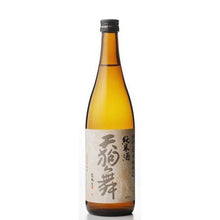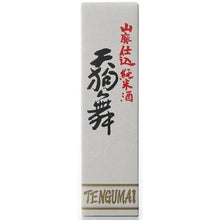山廃仕込純米酒 天狗舞_Yamahai-jikomi Junmai SAKE Tengumai
Features & Details
- Ishikawa Prefecture
- Shata Shuzo Co. Ltd.
- Rice (Gohyakumagoku) koji rice
- sake meter value (SMV): +3
- acidity: 1.9
- rice-milling percentage: 60%
- Alcohol content: 16%
It is a Junmai-shu with a rich individuality that harmonizes the rich aroma and acidity unique to Yamahai-brewed SAKE. The dark bright yellow is also pleasing to the eye.
Got a trophy award in 2011 (Highest Gold Medal Award) held in London for Sake section in the IWC (International Wine Challenge) competition. Bringing the product flag Tengumai Sake. It has a rich flavor harmonized with sourness.
Shata Brewery Co.
1823 - The company was founded in Bohmaru-cho, Hakusan City. The name "車多" comes from the fact that the rice was polished by using the water of the Tedori River system and turning many water wheels.
Nakasaburo, one of the "Big Four of the Noto Toji," is a member of the company and brews brands such as "Tengumai" with all the rice polished in-house.
Traditionally brewed with Yamahai
Tengumai brews a lot of sake using the Yamahai brewing method, aiming to brew sake with a rich flavor and crispness.
In the 1965s, Juro Kurumada, the seventh head of the company, and Saburo Naka, the toji, devoted themselves to the Yamahai brewing of the Tengumai style. In keeping with that tradition, they continue to make meticulous improvements each year.
SAKE in the color Yamabuki
Tengumai's products are usually matured in a warehouse before being bottled.
When the sake is carefully brewed using high quality rice and water and matured slowly, it turns the color Yamabuki. (The color is a dark yellow.)
Tengumai avoids the use of activated charcoal, which can adjust the color of sake, as much as possible in order to reflect the original taste of the rice.
In the production process of koji, more koji bacteria are brewed than in normal sake breweries, so even freshly squeezed sake has a yellowish color derived from koji.
Tengu-Mai would like to keep the "natural color of sake" forever.




